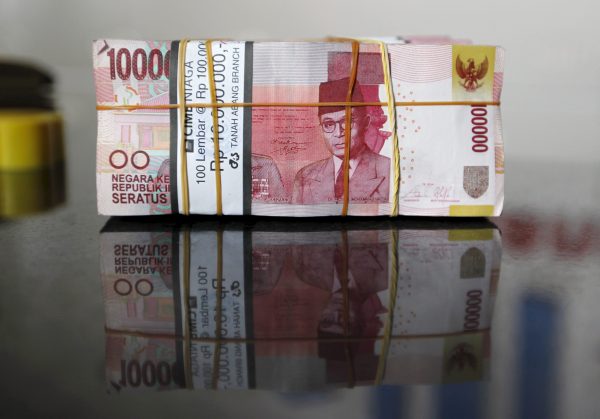Rather than relying on commodity export earnings or balance-of-payments surpluses, the government will fund LPI through the state budget and assets. Jakarta will initially inject US$1 billion, soon followed by up to US$5 billion.
Unlike many SWFs, which generally prioritise their own financial goals, LPI’s major objective will be in stimulating national development. The fund could play an important role in relieving debt-ridden SOEs from financial pressure by acquiring their infrastructure assets. This strategy will provide room for SOEs to further expand productive investment.
The Indonesian SWF will also look to attract foreign investment for development projects. Indonesian officials have approached potential co-investors from various countries including the United States, the United Arab Emirates and Japan. The government envisions LPI attracting up to US$16 billion in foreign investment.
Indonesia’s plan to establish LPI has captured the interest of some in the international media, who have depicted it as a pragmatic act by President Joko ‘Jokowi’ Widodo’s government to accelerate economic development. LPI’s immediate consequences will likely be less than spectacular.
Indonesia’s SWF will be a moderate player on the Indonesian development scene, with the possibility for corruption more limited compared to that of other parastatals. But the no less serious concern is that LPI’s modest success could be used as window dressing for Indonesia’s state-owned sector.
The establishment of LPI does not represent the government’s sudden turn towards state capitalism — the resurgence of state capitalism has been ongoing for over five years. To accelerate infrastructure development, the Jokowi government has mobilised state enterprises in utilities, transportation and construction. It also relies on state enterprises to conduct strategic activities in natural resources and manufacturing.
SOEs have grown rapidly with government support. Since 2014, SOE assets nearly doubled to US$630 billion, equivalent to 56 per cent of GDP in 2019. One important support measure has been the infusion of capital from the state budget, which has been leveraged by state enterprises to access even more funding through raising loans and issuing bonds.
The Jokowi government has also expanded state-owned development financiers. The government initially concentrated on expanding PT Sarana Multi Infrastruktur (SMI), an institution specialising in infrastructure financing, whose assets expanded more than eight-fold between 2014 and 2019 on the back of government support. More recently, Lembaga Manajemen Aset Negara (LMAN), a land bank, has also grown rapidly. A less well-known fact is that the Indonesia Endowment Fund for Education (known as LPDP), an education financier, has already been assigned the role of an SWF after a notable expansion.
LPI’s US$1 billion worth of start-up capital is far from trivial, but it is not ground-breaking when compared with the over US$20 billion ploughed into state enterprises and funding agencies over the past five years, with their total assets now inching toward US$700 billion.
There is then a concern about LPI degenerating into something similar to Malaysia’s 1MDB scandal. Yet if the strategy proceeds remotely as planned, LPI will have some of the weightiest public and perhaps private institutions from around the world as its co-investors. This arrangement is no guarantee against corruption, but LPI will face pressure to be transparent and conservative in outlook by co-investors whose decisions are scrutinised by their own backers.
There is an interesting precedent for this arrangement — PT Indonesia Infrastructure Finance. This infrastructure financier is 30 per cent owned by the Indonesian government through SMI, and its shareholders include international development financial institutions and a Japanese private bank. These external investors keep a close eye on the entity through their representatives on the Board of Commissioners.
LPI’s co-investors will require a governance arrangement enabling them to closely track investee operations. If these co-investors are unsatisfied, they may threaten exit and raise the chance of diplomatic conflict.
Considering the fund’s size and the presence of international co-investors, LPI is expected to fund at least a few headline-grabbing projects with moderate risks over the coming years. It is also likely to follow internationally accepted information disclosure and management practices.
The new Indonesian SWF with modest success could come to represent the wider state-owned sector in Indonesia. But despite making some visible contributions to economic development, especially in infrastructure, the state sector is still struggling with corruption and nepotism.
There have been enormous fraud cases at state enterprises such as insurer Jiwasraya and pension fund Asabri. And more worrying is the expanding politico-business network centred around the Minister of State-owned Enterprises Erick Thohir.
Although LPI is a playground that is neither huge nor comfortable for rent-seekers, observers should think twice when the Indonesian government oversells the performance and importance of its SWF. Jakarta may well be trying to distract from the state-owned sector’s real problems.
Civil society organisations, activists, the media and academia will have to strengthen their role in keeping developmental state capitalism alive but restrained. This will ensure state enterprises still contribute to Indonesia’s development going forward.
Kyunghoon Kim recently completed a PhD in Development Studies (Political Economy) at King’s College London.

